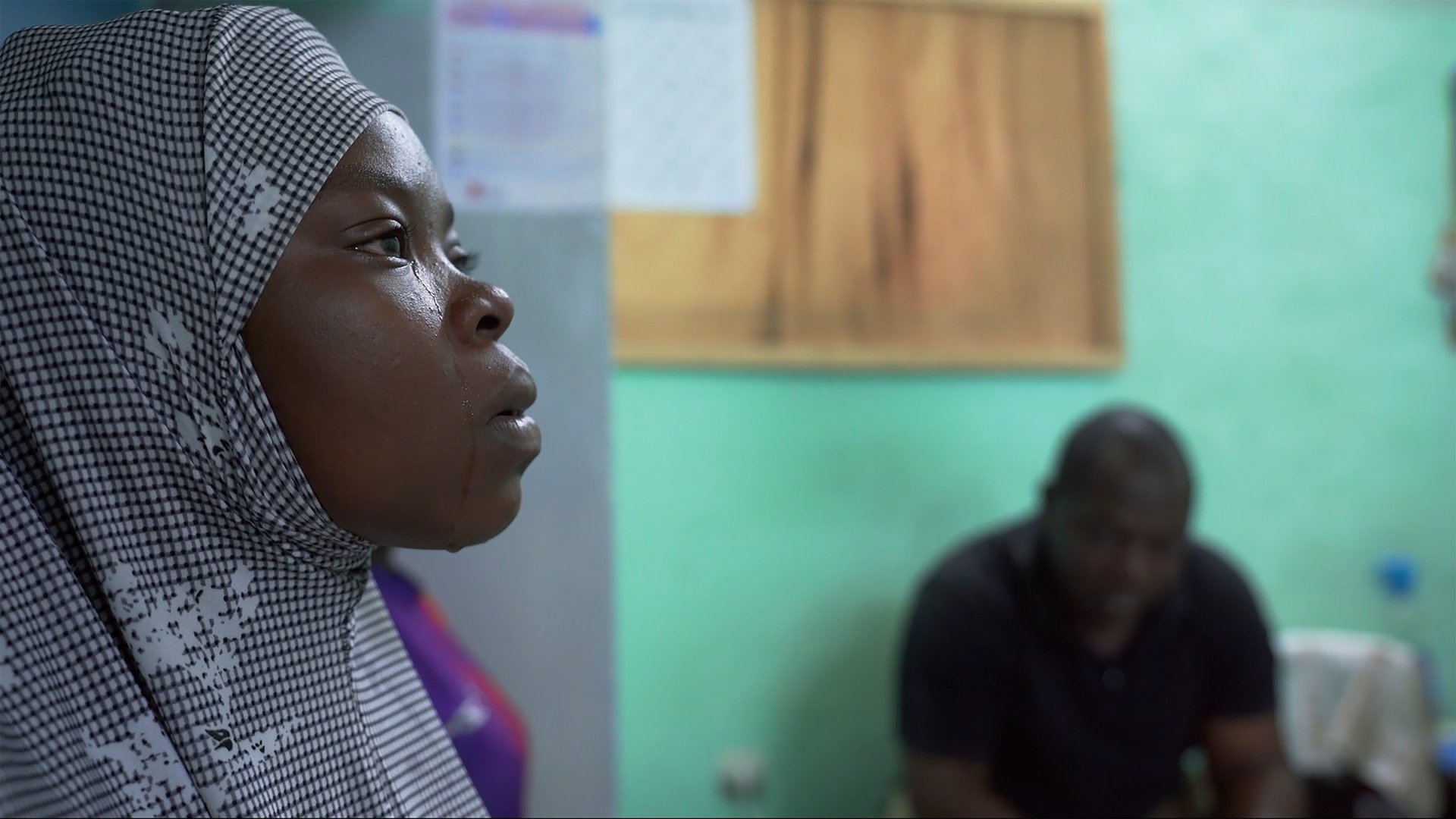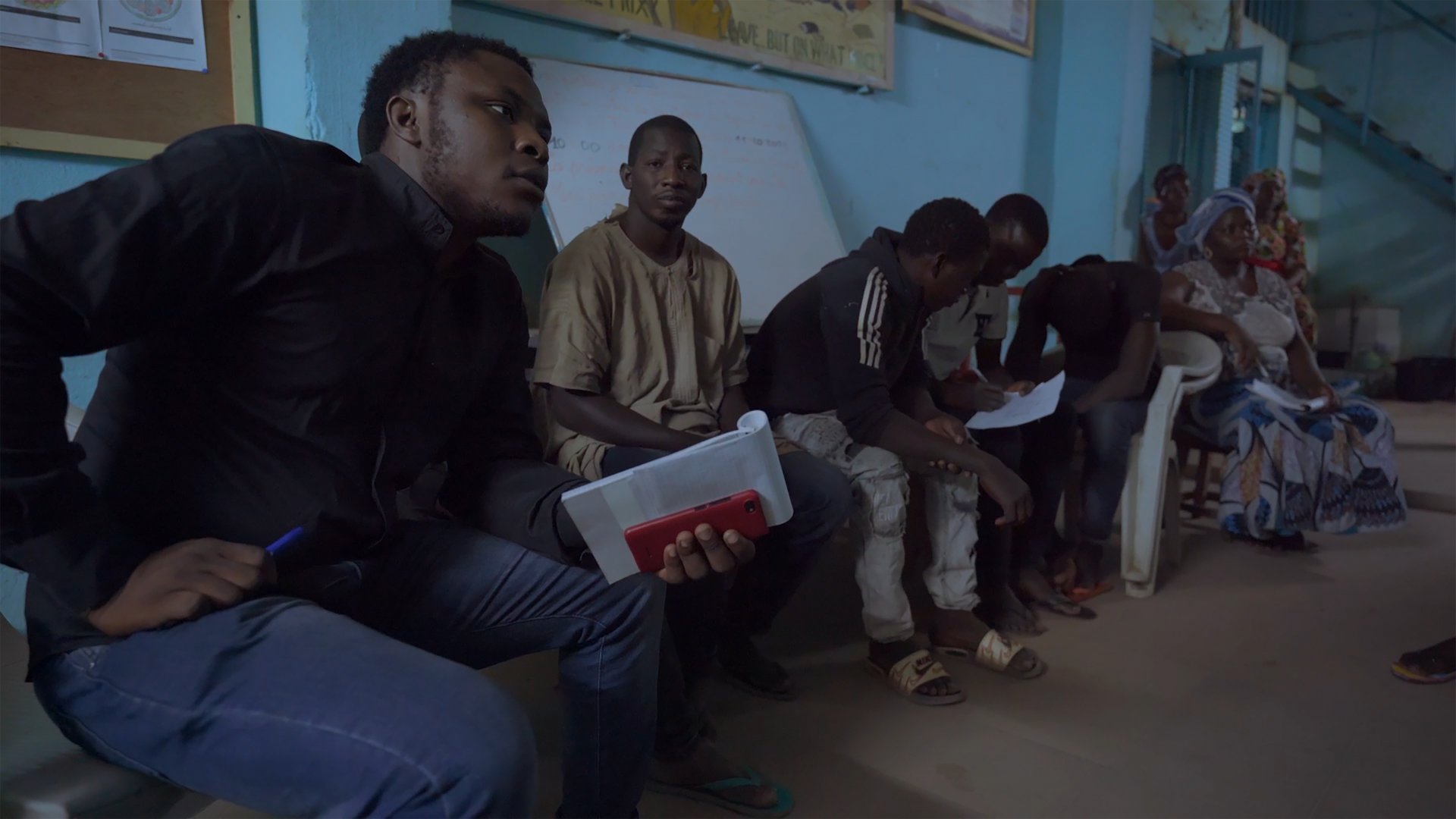
A scene from the documentary The Last Shelter, directed by Ousmane Samassekou.
Malian Documentary Film The Last Shelter wins main prize at CPH:DOX
IMS-supported film The Last Shelter wins award for Best Documentary Film at Copenhagen International Documentary Film Festival.
At a reception center in the North Malian town of Gao, two groups of migrants temporarily live side by side: those who take shelter before attempting to cross the Sahara and those who have already made the attempt returning with broken dreams or even trauma.
At the migrant crossroad on the border of the Sahara desert, Malian-Ivorian director of the film Ousmane Samassekou found the perfect setting for his documentary film The Last Shelter, offering a unique opportunity to challenge stereotypes, which stick to migration, asking a new set of questions:
“Instead of speaking about those who leave, I wanted to address those who have returned. Why is it difficult for us to return? What burden do they carry?”, says Ousmane Samassekou.
Watch our interview with Ousmane Samassekou about The Last Shelter:
On Saturday, April 30th, The Last Shelter was announced as the winner of the DOX:Award, the main price at the Copenhagen International Documentary Film Festival.
In its explanation, the jury praised the films ability of beautifully depicting the difficult dilemmas that the migrants are facing:
“The Dox:Award goes to a profound film which transports us to a vast landscape of questioning,” the jury said. “Through its tender portraiture it populates an epic vista with unforgettable individuals on the cusp of choosing whether they will risk being obliterated in search of a dream.”
“The House of Migrants” which is run by the organisation Caritas, offers health care and food, while giving support, reliable information and advice to transiting migrants. “An African Republic”, Ousmane Samassekou calls the place where migrants gather from across the continent filling the reception center with words in Peul, Bambara, Swahili, English and French.
Experiencing the “House of Migrants” for the first time, Ousmane Samassekou was so eager to tell the story that he began working on the film before receiving any grants or funding. As the film began to take shape, Ousmane Samassekou and the Mali-France-South Africa co-production got in contact with IMS who supported the production of the film through funding from Danida.
“This boosted us a lot and enabled us to finish our production, leading to the creation of this beautiful movie”, says Ousmane Samassekou.

Photo: from the film
Migration rooted in the family
In working with the film and the topic of migration, Ousmane Samassekou was often reminded of a personal story that has troubled him and his family for decades.
One morning 32 years ago Ousmane Samassekou’s uncle left home with a plan of going to Europe. Leading up to his departure, the entire family had made great sacrifices, supporting him with money and clothes hoping to see him succeed. But since that day, they have not seen or heard from him. Despite the overwhelming risk that the uncle has lost his life on the journey, he is still talked about in the present tense in the family, Samassekou explains.
His family story and the personal stories, he has been documenting in The Last Shelter helped to support his conviction that West African migration is rooted in the family:
“It is not only one person’s choice. If that was the case, they could stop. But it is often an entire family that decides: “Okay, it is time. You must pack your things. You have to leave, and we will help you”

Documentary conveys the challenges of migration
To Jesper Højbjerg, Director at IMS, The Last Shelter demonstrates a unique ability to make migration relatable to a global audience by giving voice to African migrants and portraying their personalities, while adding the necessary nuances:
“Media around the world have difficulties covering migration in a balanced and inclusive manner. The Last Shelter is an example of a documentary that manages to convey the challenges and personal stories behind the figures in a professional and thoughtful way, leaving the viewer more insightful,” IMS director Jesper Højberg says.
To support the media coverage of migration, IMS has worked with training of journalists in inclusive coverage of migrants and migration, for instance in the Sahel region.
Read more about IMS Documentary Film Programme.




